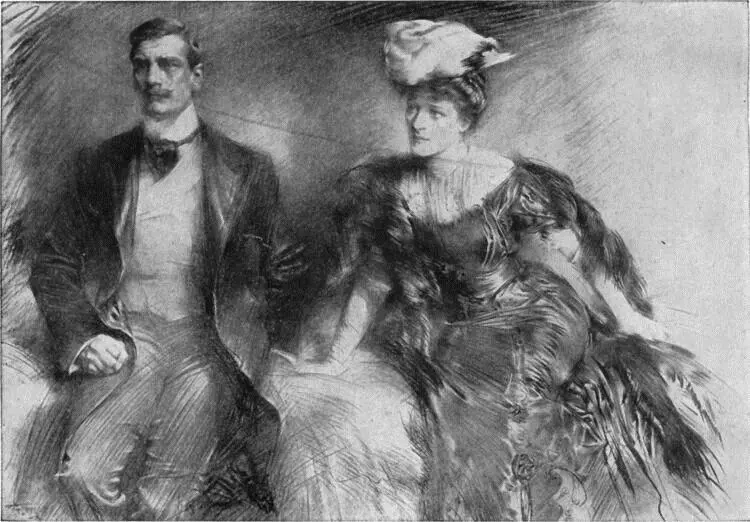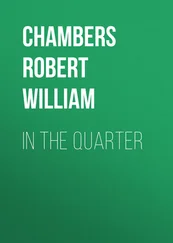Robert Chambers - The Younger Set
Здесь есть возможность читать онлайн «Robert Chambers - The Younger Set» — ознакомительный отрывок электронной книги совершенно бесплатно, а после прочтения отрывка купить полную версию. В некоторых случаях можно слушать аудио, скачать через торрент в формате fb2 и присутствует краткое содержание. Жанр: foreign_prose, foreign_antique, на английском языке. Описание произведения, (предисловие) а так же отзывы посетителей доступны на портале библиотеки ЛибКат.
- Название:The Younger Set
- Автор:
- Жанр:
- Год:неизвестен
- ISBN:нет данных
- Рейтинг книги:3 / 5. Голосов: 1
-
Избранное:Добавить в избранное
- Отзывы:
-
Ваша оценка:
- 60
- 1
- 2
- 3
- 4
- 5
The Younger Set: краткое содержание, описание и аннотация
Предлагаем к чтению аннотацию, описание, краткое содержание или предисловие (зависит от того, что написал сам автор книги «The Younger Set»). Если вы не нашли необходимую информацию о книге — напишите в комментариях, мы постараемся отыскать её.
The Younger Set — читать онлайн ознакомительный отрывок
Ниже представлен текст книги, разбитый по страницам. Система сохранения места последней прочитанной страницы, позволяет с удобством читать онлайн бесплатно книгу «The Younger Set», без необходимости каждый раз заново искать на чём Вы остановились. Поставьте закладку, и сможете в любой момент перейти на страницу, на которой закончили чтение.
Интервал:
Закладка:
"Dear fellow!" she said, looking tenderly at him; and then under her breath: "What a ghastly life you have led!"
But he knew she did not refer to the military portion of his life.
He threw back his coat, dug both hands into his pockets, and began to wander about the rooms, halting sometimes to examine nondescript articles of ornament or bits of furniture as though politely interested. But she knew his thoughts were steadily elsewhere.

"'There is no reason,' she said, 'why you should not call this house home.'"
Sauntering about, aware at moments that her troubled eyes were following him, he came back, presently, to where she sat perched upon his bed.
"It all looks most inviting, Nina," he said cheerfully, seating himself beside her. "I—well, you can scarcely be expected to understand how this idea of a home takes hold of a man who has none."
"Yes, I do," she said.
"All this—" he paused, leisurely, to select his words—"all this—you—the children—that jolly nursery—" he stopped again, looking out of the window; and his sister looked at him through eyes grown misty.
"There is no reason," she said, "why you should not call this house home."
"N-no reason. Thank you. I will—for a few days."
" No reason, dear," she insisted. "We are your own people; we are all you have, Phil!—the children adore you already; Austin—you know what he thinks of you; and—and I—"
"You are very kind, Ninette." He sat partly turned from her, staring at the sunny window. Presently he slid his hand back along the bed-covers until it touched and tightened over hers. And in silence she raised it to her lips.
They remained so for a while, he still partly turned from her, his perplexed and narrowing gaze fixed on the window, she pressing his clenched hand to her lips, thoughtful and silent.
"Before Austin comes," he said at length, "let's get the thing over—and buried—as long as it will stay buried."
"Yes, dear."
"Well, then—then—" but his throat closed tight with the effort.
"Alixe is here," she said gently; "did you know it?"
He nodded.
"You know, of course, that she's married Jack Ruthven?"
He nodded again.
"Are you on leave, Phil, or have you really resigned?"
"Resigned."
"I knew it," she sighed.
He said: "As I did not defend the suit I couldn't remain in the service. There's too much said about us, anyway—about us who are appointed from civil life. And then—to have that happen!"
"Phil?"
"What?"
"Will you answer me one thing?"
"Yes, I guess so."
"Do you still care for—her?"
"I am sorry for her."
After a painful silence his sister said: "Could you tell me how it began, Phil?"
"How it began? I don't know that, either. When Bannard's command took the field I went with the scouts. Alixe remained in Manila. Ruthven was there for Fane, Harmon & Co. That's how it began, I suppose; and it's a rotten climate for morals; and that's how it began."
"Only that?"
"We had had differences. It's been one misunderstanding after another. If you mean was I mixed up with another woman—no! She knew that."
"She was very young, Phil."
He nodded: "I don't blame her."
"Couldn't anything have been done?"
"If it could, neither she nor I did it—or knew how to do it, I suppose. It went wrong from the beginning; it was founded on froth—she had been engaged to Harmon, and she threw him over for 'Boots' Lansing. Then I came along—Boots behaved like a thoroughbred—that is all there is to it—inexperience, romance, trouble—a quick beginning, a quick parting, and two more fools to give the lie to civilization, and justify the West Pointers in their opinions of civil appointees."
"Try not to be so bitter, Phil; did you know she was going before she left Manila?"
"I hadn't the remotest idea of the affair. I thought that we were trying to learn something about life and about each other. . . . Then that climax came."
He turned and stared out of the window, dropping his sister's hand. "She couldn't stand me, she couldn't stand the life, the climate, the inconveniences, the absence of what she was accustomed to. She was dead tired of it all. I can understand that. And I—I didn't know what to do about it. . . . So we drifted; and the catastrophe came very quickly. Let me tell you something; a West Pointer, an Annapolis man, knows what sort of life he's going into and what he is to expect when he marries. Usually, too, he marries into the Army or Navy set; and the girl knows, too, what kind of a married life that means.
"But I didn't. Neither did Alixe. And we went under; that's all—fighting each other heart and soul to the end. . . . Is she happy with Ruthven? I never knew him—and never cared to. I suppose they go about in town among the yellow set. Do they?"
"Yes. I've met Alixe once or twice. She was perfectly composed—formal but unembarrassed. She has shifted her milieu somewhat—it began with the influx of Ruthven's friends from the 'yellow' section of the younger married set—the Orchils, Fanes, Minsters, and Delmour-Carnes. Which is all right if she'd stay there. But in town you're likely to encounter anybody where the somebodies of one set merge into the somebodies of another. And we're always looking over our fences, you know. . . . By the way," she added cheerfully, "I'm dipping into the younger set myself to-night—on Eileen's account. I brought her out Thursday and I'm giving a dinner for her to-night."
"Who's Eileen?" he asked.
"Eileen? Why, don't you—why, of course , you don't know yet that I've taken Eileen for my own. I didn't want to write you; I wanted first to see how it would turn out; and when I saw that it was turning out perfectly, I thought it better to wait until you could return and hear all about it from me, because one can't write that sort of thing—"
"Nina!"
"What, dear?" she said, startled.
"Who the dickens is Eileen?"
"Philip! You are precisely like Austin; you grow impatient of preliminary details when I'm doing my very best attempting to explain just as clearly as I can. Now I will go on and say that Eileen is Molly Erroll's daughter, and the courts appointed Austin and me guardians for her and for her brother Gerald."
"Oh!"
"Now is it clear to you?"
"Yes," he said, thinking of the tragedy which had left the child so utterly alone in the world, save for her brother and a distant kinship by marriage with the Gerards.
For a while he sat brooding, arms loosely folded, immersed once more in his own troubles.
"It seems a shame," he said, "that a family like ours, whose name has always spelled decency, should find themselves entangled in the very things their race has always hated and managed to avoid. And through me, too."
"It was not your fault, Phil."
"No, not the divorce part. Do you suppose I wouldn't have taken any kind of medicine before resorting to that! But what's the use; for you can try as you may to keep your name clean, and then you can fold your arms and wait to see what a hopeless fool fate makes of you."
"But no disgrace touches you, dear," she said tremulously.
"I've been all over that, too," he said with quiet bitterness. "You are partly right; nobody cares in this town. Even though I did not defend the suit, nobody cares. And there's no disgrace, I suppose, if nobody cares enough even to condone. Divorce is no longer noticed; it is a matter of ordinary occurrence—a matter of routine in some sets. Who cares?—except decent folk? And they only think it's a pity—and wouldn't do it themselves. The horrified clamour comes from outside the social registers and blue books; we know they're right, but it doesn't affect us. What does affect us is that we were the decent folk who permitted ourselves the luxury of being sorry for others who resorted to divorce as a remedy but wouldn't do it ourselves! . . . Now we've done it and—"
Читать дальшеИнтервал:
Закладка:
Похожие книги на «The Younger Set»
Представляем Вашему вниманию похожие книги на «The Younger Set» списком для выбора. Мы отобрали схожую по названию и смыслу литературу в надежде предоставить читателям больше вариантов отыскать новые, интересные, ещё непрочитанные произведения.
Обсуждение, отзывы о книге «The Younger Set» и просто собственные мнения читателей. Оставьте ваши комментарии, напишите, что Вы думаете о произведении, его смысле или главных героях. Укажите что конкретно понравилось, а что нет, и почему Вы так считаете.












